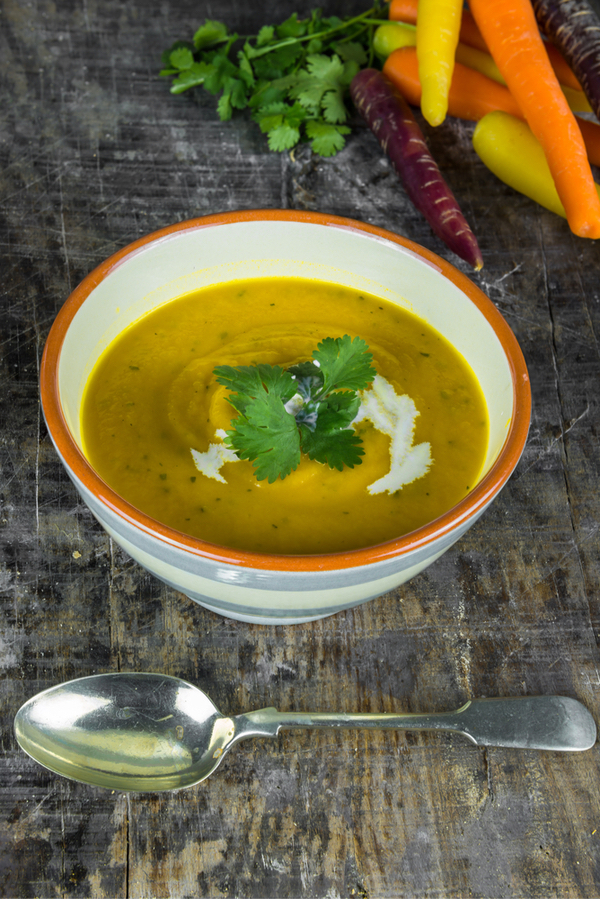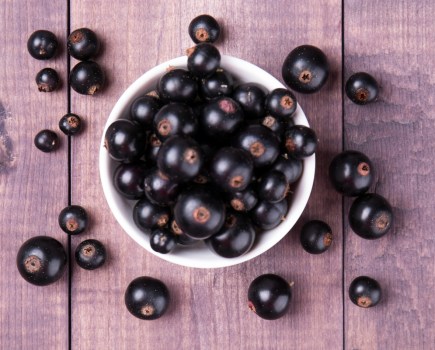We take a look at some of the best foods to nourish your body right now in the depths of autumn.
As we go deeper into autumn, this seasonal shift of rhythm is reflected in our minds and bodies. The exuberance and optimism of hot summer days gradually give way to autumnal introspection.
‘All around in nature, leaves are changing colour and shedding, fruits are ripe for picking, crops are ready for harvest, and animals are beginning to slow down and prepare for winter,’ says acupuncturist Houri Alavi.
‘As we go into autumn, we leave the richness and abundance of summer and enter a phase of storing and preparation.’
Time to let go
‘In Traditional Chinese Medicine (TCM), each season is characterised by a different elemental energy,’ says Houri. ‘Autumn falls under the metal element, which is governed by yin energy.
The energetic movement of yin is inwards and downwards. It’s to do with constriction and restriction. Metal energy is dark, dry and cool, too.’
Metal rules the lungs and its pair organ is the large intestine. ‘Emotionally, the lungs are associated with grief, sadness, anxiety and letting go,’ says Houri. ‘The large intestine is all about release and getting rid of physical and emotional baggage. When these energies are in balance, you think clearly, feel positive and find it easy to let go of things. Imbalances lead to stagnation, sadness, melancholia and feeling stuck.
The physical effects of sadness
‘Likewise, if you’re feeling sad or anxious, breathing becomes shallow, which affects your lungs. Many breathing (asthma) and bowel disorders are rooted in excess, or prolonged grief and sadness.’
The lungs control breathing, taking in moisture and chi (energy). When you breathe in, your lungs circulate chi downwards throughout the body.
‘This has an effect on your skin and hair, strengthens the joints and muscles, and transports waste to your kidneys,’ says Houri. ‘The role of the large intestine is to eliminate what you don’t need. So, when your lungs and large intestine are working harmoniously, you feel energised and healthy. When your lungs are strong, your skin is healthy too as excess waste is expelled through your pores via sweat.’
A case of the sniffles
Problems that can occur if metal energy is imbalanced are: colds and flu, respiratory infections, bronchitis, coughs, a tight chest and shallow breathing, asthma, allergies, rashes and skin complaints (lung chi is responsible for the quality of the skin).
In addition, it can mean poor sense of smell, constipation, bowel disorders, sinus problems, feeling sluggish, depression, anxiety, grief, low self-esteem, inability to let go (of clutter, toxic emotions, negative thoughts, rigid ideas etc), and obsessive compulsive disorders.
What to eat now
‘TCM principles are based on eating seasonally as much as possible,’ says TCM practitioner Jonquil Westwood Pinto.
‘Choosing foods that correspond to the seasonal energies will help to keep you healthy. At this time of year this means eating to nourish and warm your system and support metal energy. And in the autumn it’s best to avoid cold foods and drinks.
‘All meals should be warm and cooked – think soups, broths, stews, casseroles, cooked vegetables, especially root veg such as carrots, turnips, parsnips, pumpkin and sweet potato.’
The metal element is also associated with pungent tastes: spices, garlic and aromatics including ginger, red and white radish, peppers, onions and horseradish.
‘Associating a taste with an element is based on the idea that different tastes have both thermal qualities (either cold, neutral, warm or hot) and directional movement qualities. The movement for autumn is one of contraction and drawing in,’ says Jonquil.
Choose pungent, warming foods
‘Pungent foods are warming and therefore helpful for dissipating contracted, inward-moving energy as well as dispelling excessive moisture in the body. They counterbalance the cool, contracted energy of metal by moving your chi (energy), making it easier to release pathogens and toxins.’
Dryness is another characteristic of metal and can lead to chapped lips, dry skin and skin conditions including eczema, as well as dryness in the lungs that leads to coughs and colds.
‘It’s important to stay hydrated. Good sources of fluids include soups and warming herbals teas,’ says Jonquil.
To find a practitioner of TCM and acupuncture visit the British Acupuncture Council (BAcC) at acupuncture.org.uk.
TOP 10 AUTUMNAL FOODS
Nourish and warm your body with these TCM-approved staples.
Root vegetables.
Carrots, sweet potatoes, pumpkins, squash, turnips and parsnips grow underground and therefore correspond to the downward movement of metal energy. Root vegetables will also help you to feel more physically and mentally grounded, improving stamina and endurance. They are also a rich source of nutritious complex carbohydrates, minerals, vitamins and antioxidants.
Whole grains.
Brown rice, wild rice, quinoa are fibrous and therefore help to keep your bowel healthy.
Coriander.
This herb is pungent and warming. The seeds help to enhance circulation of chi.
Cayenne pepper.
This spice is warming and helps disperse mucus from your lungs.
Horseradish.
This is pungent and warming. It helps promote circulation of chi and disperses dampness and phlegm.
Dark leafy green vegetables.
Kale, mustard greens, cabbage and leeks help to keep your lungs and large intestine healthy. Eat steamed or lightly cooked.
Garlic.
This is a great herb for cleansing and nourishing the lungs. Garlic has natural antibacterial and antiseptic properties that offer protection against colds, flu and other respiratory infections. It also helps boost immunity.
Turmeric.
This wonder spice will warm up any soup or stew and has potent anti-inflammatory properties.
Walnuts.
TCM considers these nuts to be ‘warming’ to the body. They’re also anti-inflammatory.
Fermented foods.
Sauerkraut, miso, tempeh, kimchi and kefir promote friendly bacteria in your gut so are beneficial for digestive health and help to keep your large intestine healthy.
CARROT, COCONUT AND CORIANDER SOUP
Keep yourself hydrated and warm this autumn with this comforting recipe.
 Serves 1
Serves 1
Coriander is a gently pungent herb that gives this dish a light, aromatic taste that combines well with the sweetness of carrot.
Onion 1, chopped
Carrots 200g, chopped
Olive oil 1tsp
Coriander 1tsp, ground
Stock 500ml, chicken or vegetable
Coconut milk 100ml
Salt and pepper to taste
Coriander leaves handful, fresh, chopped
Saute onion and carrots in olive oil in a saucepan for a few mins.
Sprinkle in ground coriander and stir.
Add stock, bring to a simmer then cook with lid on, until carrots are soft.
Pour in the coconut milk and blend until smooth.
If you need to adjust the quantity of fluid, add some boiling water.
Add salt and pepper, and garnish with coriander leaves.








